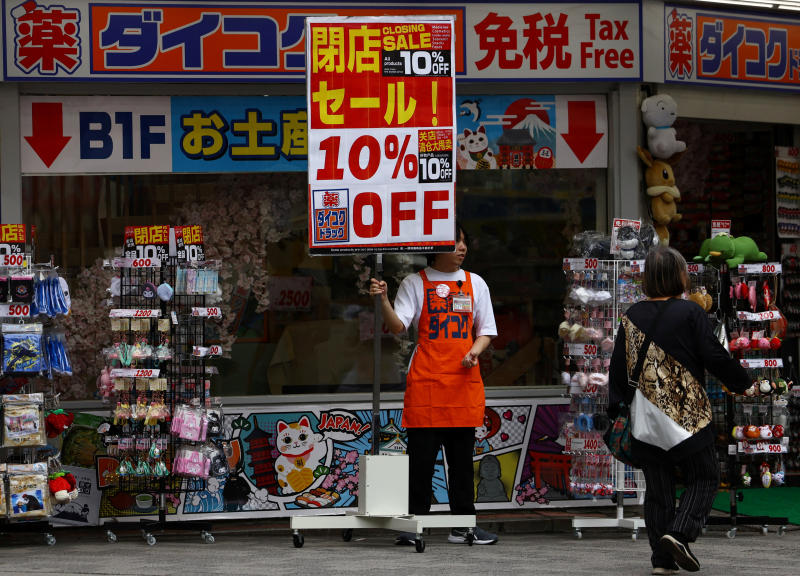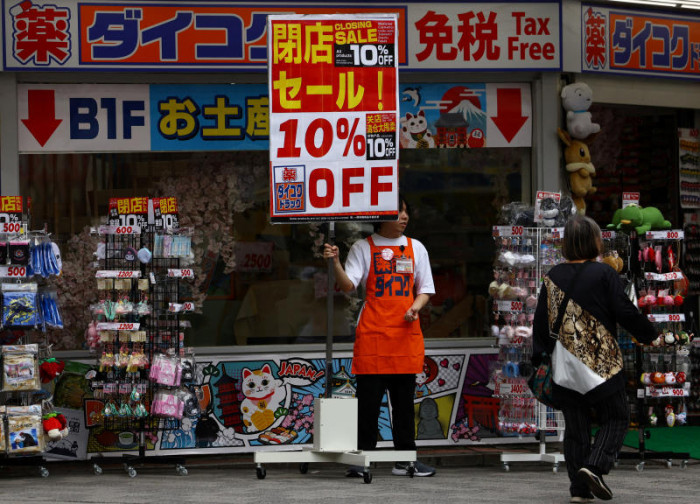PUBLISHED : 16 May 2025 at 18:23
Small
Medium
Large

A store staff member tries to attract customers in Tokyo, Japan, on Thursday. (Photo: Reuters)
Japan’s stricter immigration processing should not affect outbound tourism as much as sluggish economic growth, according to the Thai Travel Agents Association (TTAA).
Two incidents involving Thai tourists went viral this week: several travellers were questioned by Japanese police over suspected cannabis found in their Thai herbal inhalers, and a Thai prosecutor was arrested at Narita Airport for harassing an airline employee.
Chotechuang Soorangura, vice-president of the Thai Travel Agents Association (TTAA), said these incidents should have only a minimal impact on Thai travel sentiment, noting that Japanese officers were simply doing their jobs.
He added that Japanese authorities have also been cracking down on foreign guides who have been blacklisted for overstaying their visas. When these individuals attempt to re-enter the country, immigration officers often interrogate them one-on-one.
Following Thailand’s decriminalisation of cannabis, it is common for immigration and police officers in other countries — especially in Asian nations where cannabis remains illegal — to closely monitor arrivals from Thailand, Mr Chotechuang said.
According to the Japan National Tourism Organisation, Japan welcomed 1.1 million Thai travellers last year, close to the 1.3 million recorded in 2019.
However, Mr Chotechuang said the number this year is unlikely to match the 2023 total due to several contributing factors.
He noted that Thailand’s outbound travel sector has been hampered by sluggish economic growth, with government stimulus measures, such as the 10,000-baht digital wallet giveaway, yet to create positive momentum.
Many people have opted to save money instead of travelling abroad, while companies have cut back on business trips, he added.
Although Japan is expected to continue attracting independent travellers, many travel agents are scaling back their tour groups and shifting focus to other destinations—particularly China, which also offers visa-free entry for Thai tourists.
Mr Chotechuang said some visitors have started complaining that Japan has too many foreign workers in the hospitality sector, diminishing its authentic cultural appeal.
However, he pointed out that the number of foreign workers in Japan has not returned to pre-pandemic levels, largely due to the country’s relatively low wages amid a weakened yen.
Mr Chotechuang estimated that the number of Thai tourists visiting Japan in 2025 will likely fall short of last year’s total, while China may overtake Japan as the top outbound destination, with an expected 1 million Thai travellers.


AloJapan.com